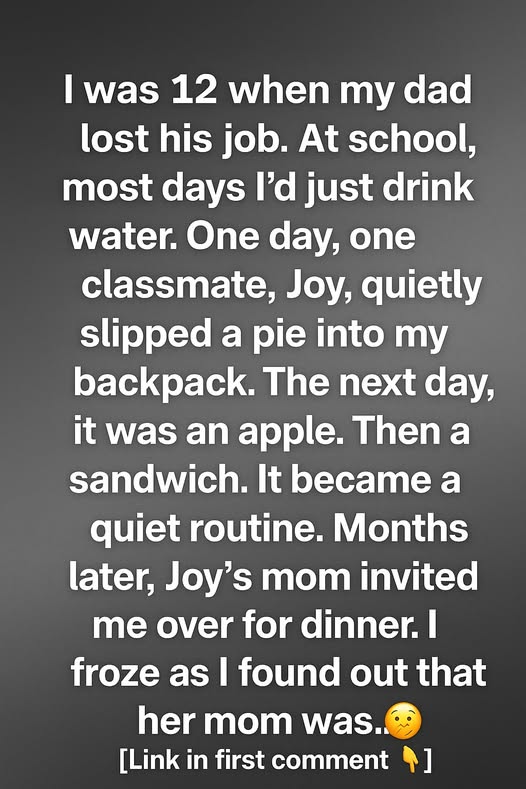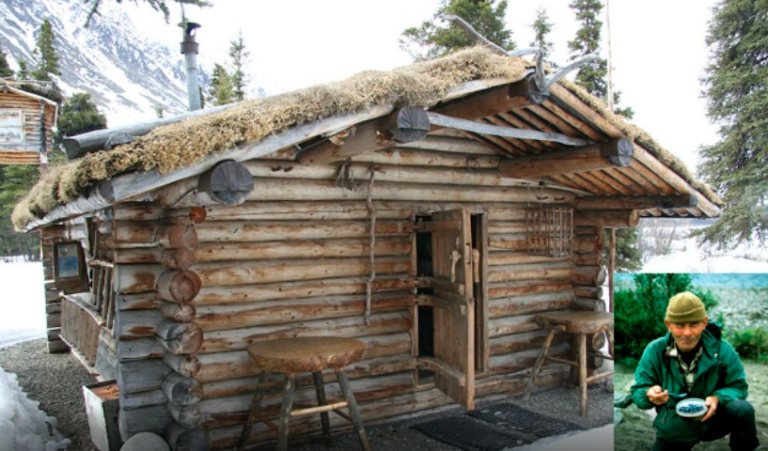When I was twelve years old, my world shifted in ways I never could have imagined. Up until then, my family had lived a fairly comfortable life. We weren’t rich, but we had enough. There were family dinners, weekend outings, and a home that always felt secure. But then my father lost his job. Almost overnight, the stability I had always known began to crumble.
At first, I didn’t understand the seriousness of what was happening. I only noticed the subtle changes: the hushed conversations between my parents late at night, the stacks of unopened bills gathering on the kitchen table, and the sadness in my mother’s eyes when she thought no one was watching. Slowly, the changes became more obvious. Dinners grew smaller. The heat was turned down lower in winter. My parents spoke less and worried more.
The hardest part for me, though, was school. While most kids had neatly packed lunches or a few dollars to buy something from the cafeteria, I often had nothing. I’d sit at the table with my friends, smiling and pretending I wasn’t hungry, sipping from a bottle of water to mask the emptiness in my stomach. I was embarrassed, and more than anything, I didn’t want anyone to know how bad things had become at home.
The First Surprise
One ordinary afternoon, I unzipped my backpack and froze. Inside was a small pie, still warm, wrapped carefully in foil. I stared at it, stunned. I hadn’t packed it, and my mom certainly hadn’t either—we barely had enough food for dinner most nights. Confused, I looked around the classroom, but no one seemed to be paying me any attention.
The next day, it happened again. This time, it was a shiny red apple. The day after that, a neatly wrapped sandwich. It became a quiet, unspoken routine. Each afternoon, I would find something tucked away in my bag—a small meal, a piece of fruit, or a baked treat. Whoever was behind it never revealed themselves, and I never asked.
Those quiet gifts meant more to me than I could ever explain. They weren’t just food; they were lifelines. They reminded me that I wasn’t completely invisible, that someone somewhere cared enough to notice my struggle. Each bite carried hope, and in a time when everything else felt heavy, those small acts of kindness lifted me up.
A Dinner Invitation
Months later, my classmate Joy invited me over for dinner. I hesitated. I hadn’t been going to friends’ houses much anymore. I didn’t want anyone to see the difference between their lives and mine, or worse, to pity me if they figured out what I was going through. But Joy was insistent, and something about her cheerful persistence made it hard to say no.
When I stepped into her home, I was struck immediately by the warmth. The smell of fresh bread filled the air, and laughter drifted from the kitchen where her family was gathered. It felt different from my own home, lighter, less burdened.
We sat down to dinner, and that’s when it happened. Joy’s mom carried a pie to the table—perfectly baked, golden-brown crust, the exact same kind I had been finding in my backpack for months. My heart stopped as the realization hit me.
“It was you,” I whispered, staring at her with wide eyes.
She smiled softly, her expression kind but unassuming. “Joy told me you sometimes skipped lunch,” she said gently. “I didn’t want you to go hungry, sweetheart.”
A Lesson in Compassion
Tears welled up in my eyes. For months I had thought I was alone, carrying the weight of hunger and embarrassment in silence. But the truth was, someone had seen me. Someone had cared enough to help without asking for anything in return, without even seeking recognition.
That dinner changed me. It wasn’t just about the food. It was about compassion, about being reminded that even in the hardest times, kindness could find its way in. That pie on the table represented something far bigger than a meal—it represented hope, empathy, and quiet generosity.
Joy’s mom never mentioned it again, and I never brought it up. But the memory stayed with me, etched deep into my heart.
Carrying It Forward
As I grew older, I carried that lesson everywhere I went. Life eventually improved for my family—my dad found work again, and things stabilized—but the memory of those days never left me. More importantly, the impact of Joy’s mom’s kindness became a guiding principle in my own life.
Whenever I had the chance, I tried to pass it on. In college, I made a point of sharing extra food with classmates who I suspected were struggling. Later, when I had a steady job, I started volunteering at food banks and shelters. Sometimes, when I noticed someone looking lost or out of place, I’d quietly offer help without making a big show of it. Because sometimes, that’s what makes the difference—not grand gestures, but small, quiet acts that tell someone, I see you. You matter.
What It Taught Me
Looking back, I realize that those lunches in my backpack didn’t just fill my stomach; they filled a deeper hunger I didn’t even know how to name at the time. They gave me dignity in a period where I felt ashamed. They gave me hope when everything around me seemed uncertain.
Most of all, they taught me that kindness doesn’t have to be loud or public to be life-changing. Sometimes it’s as simple as slipping a sandwich into a backpack, or leaving a warm pie for someone who needs it more than you’ll ever know.
And while I’ll never forget the struggle of those years, I’ll also never forget the quiet generosity of one woman who saw a hungry child and chose to help.
Because sometimes, the smallest act of kindness is not small at all—it can change a life forever.




